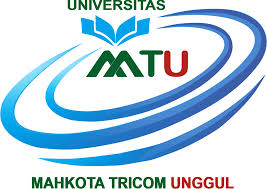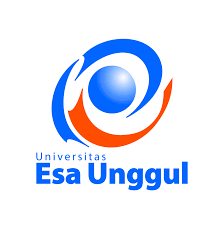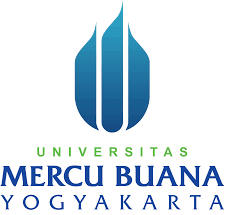Internal and External Challenges as Obstacles to the Formation of Pancasila Student Profiles: Evidence from Samata Gowa Elementary School
DOI:
https://doi.org/10.55927/fjmr.v4i10.529Keywords:
Internal Challenges, External Challenges, Pancasila Student ProfileAbstract
This study aims to describe the internal and external challenges in shaping the Pancasila Student Profile at Samata Inpres Elementary School, Gowa Regency. This study uses a descriptive qualitative method with pedagogical, psychological, and phenomenological approaches. The data sources in this study consisted of school principals, teachers, and the Concerned Parents Community, as well as guidebooks and documentation. The results of the study show that there are internal and external factors. Internal factors include teachers' limited understanding of the curriculum, psychological challenges and students' lack of understanding, and limited infrastructure. Meanwhile, external factors include the influence of the social environment, regional contextual conditions, technological developments, lack of family support, and low commitment and consistency of the Concerned Parents Community.
References
Citriadin, Y. (2019). Pengantar Pendidikan (Cet. I). CV. Sanabil.
Dahlan. (n.d.). wawancara SD Inpres Samata.
Ginting, Rosalina, and T. H. (2012). Kepemimpinan dan konteks peningkatan mutu pendidikan. CIVIS: Jurnal Ilmiah Ilmu Sosial Dan Pendidikan Kewarganegaraan, 2.
Haslindah. (2025). wawancara SD Inpres Samata.
Hasnah. (2025). Wawancara.
Hernanda Rohmiyati. (2024). PENERAPAN PROJEK PENGUATAN PROFIL PELAJAR PANCASILA DI SDN MENTENG ATAS 14. UNIVERSITAS ISLAM NEGERI SYARIF HIDAYATULLAH JAKARTA.
Hijeriyah Nangga. (2025). Wawancara.
Ida Riani. (2025). Wawancara Komunitas Orang Tua Peduli Sekolah Dasar Inpres Samata.
Irmayanti. (2025). wawancara SD Inpres Samata.
Manna, A. (2012). Akidah Islamiyah (Cet. I). Alauddin University Press.
Marjuni. (2021). Filsafat Pendidikan Pancasila Dalam PersfektifPendidikan Islam Di Indonesia. Jurnal Aqidah-Ta, Vol. VII(1), 45–62.
Marzoan. (2021). Pengaruh Kolaborasi Orang Tua Dan Guru Pada Masa Pandemi Covid-19 Terhadap Hasil Belajar Dan Motivasi Siswa Kelas X Keagamaan Pada Mata Pelajaran Aqidah Akhlak Di Mapk Syaikh Zainudin Nw Anjani Lombok Timur Tahun Pelajaran 2020/2021. 9–25.
Marzuki, G. A., & Febrianto, P. T. (2024). Kendala yang di Hadapi Guru dan Siswa dalam Pembelajaran Daring di Masa Pandemi pada Jenjang SD. Jurnal Pendidikan Tambusai, 8, 14890–14901.
Maulida, H. (2023). Pancasila Sebagai Fondasi Pendidikan Indonesia dan Relevansinya dengan Kurikulum Merdeka. NCU: National Conference for Ummah, 1(57), 450–454.
Nurul Muslimah. (2025). wawancara.
PRESIDEN REPUBLIK INDONESIA. (2003). UNDANG-UNDANG REPUBLIK INDONESIA NOMOR 20 TAHUN 2003 TENTANG SISTEM PENDIDIKAN NASIONAL.
Purnawanto, A. T. (2023). Pendidikan Karakter Melalui Internalisasi Profil Pelajar Pancasila Dalam Kurikulum Merdeka. Jurnal Pedagogy, 16(2), 103–115. https://doi.org/10.63889/pedagogy.v16i2.181
Ramlah. (2025). Wawancara.
Ridwan, M. (2017). Penafsiran Pancasila Dalam Perspektif Islam: Peta Konsep Integrasi. Dialogia, 15(2), 199. https://doi.org/10.21154/dialogia.v15i2.1191
Ruyadi, Y., Hadianto, D., Nugraha, D. M., Praja, W. N., Dahliyana, A., & Supriyono, S. (2023). Challenges and strengthening the role of Pancasila ideology in the reform era through increasing literacy. Jurnal Civics: Media Kajian Kewarganegaraan, 20(2), 313–321. https://doi.org/10.21831/jc.v20i2.63991
Suryana, E. & K. (2022). pancasila & ketahanan jati diri bangsa. PT Refika Pratama.
Published
Issue
Section
License
Copyright (c) 2025 Titi Mildawati, A Marjuni, Muljono Damopolii, Baharuddin Baharuddin

This work is licensed under a Creative Commons Attribution 4.0 International License.

































